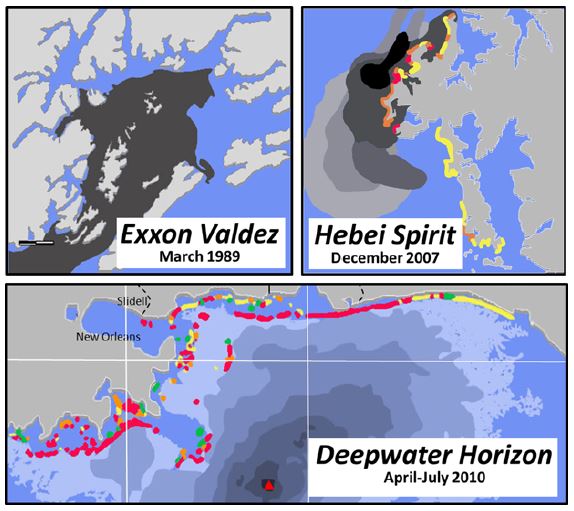
News, Research
News, Research
News, Research
New Publication
Long-Term Ecological Impacts from Oil Spills: Comparison of Exxon Valdez, Hebei Spirit, and Deepwater Horizon
On March 24th, 1989 the Exxon Valdez oil spill (EVOS) released 40.8 million liters of Alaska North Slope crude oil into the cold, subartic waters of Prince William Sound, Alaska. The spill oiled wildlife, rocky intertidal shorelines, and exposed early life stages of fish to embryotoxic levels of polycyclic aromatic hydrocarbons (PAH). The long-term impacts following the spill were observed throughout the marine ecosystem, including; subtidal communities, seabirds, and marine mammals. Barron et al compares the long-term ecological impacts of the EVOS to two extensively studied and more recent large spills; Deepwater Horizon (DWH) and the Hebei Spirit oil spill (HSOS). Comparisons between these spills (though differing in magnitude, recovery effort, and duration) shows the importance and complexity of the interactions between the environment, oil spill dynamics, and how that effects the entire system. The long-term ecological impacts of catastrophic oil spills are less predictable and can be more persistent than has been generally recognized because of these complex interactions.
To read the full paper and get an in-depth view of three different large-scale oil spills please visit our publications page on our website or click here. SSSC Research Director, Ron Heintz, is one of the authors of this paper.
